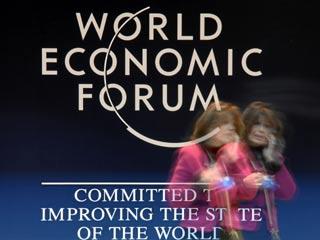• At the 40th World Economic Forum Annual Meeting 2010, participants found that the global recovery is fragile, and now is the moment to rethink values as the world rebuilds prosperity
• All countries in the G20 and beyond should find new pathways to sustainable growth and job creation
• Concretely, Bill and Melinda Gates, Co-Chairs of the Bill and Melinda Gates Foundation, which is a founding partner of the GAVI Alliance, pledged US$ 10 billion to vaccinate over 8 million children in the next decade
• Former US President William J. Clinton announced a joint initiative between the World Economic Forum, the Clinton Global Initiative and the UN to support Haiti’s long-term reconstruction
• Canadian Prime Minister Stephen Harper, South Korean President Lee Myung-Bak, Mexican President Felipe de Jesús Calderón Hinojosa and French President Nicolas Sarkozy all set forth agendas for global engagement to prevent future crises and to promote sustainability and principled growth
• Since its launch 10 years ago, the Global Alliance for Vaccines and Immunisation (GAVI) has saved over 4 million lives and has immunized an additional 256 million children in the world's poorest countries
At the conclusion of the 40th World Economic Forum Annual Meeting, participants pledged to rethink, rebuild and redesign the global economy based on sustainable principles. The sense of the Meeting, echoed by Lawrence H. Summers, Director of the US National Economic Council (NEC), was that the world was experiencing “a statistical recovery and a human recession.” “We are not out of the woods yet,” said Michael Oreskes, Senior Managing Editor of the Associated Press. “The recovery is still very fragile in many developed economies.” Principled leadership is key to stabilization.
“At the end, it’s an interdependent system,” said Josef Ackermann, Chairman of the Management Board and the Group Executive Committee of Deutsche Bank; Member of the Foundation Board of the World Economic Forum; and Co-Chair of the World Economic Forum Annual Meeting 2010. “If you lose the support of society, you are not going to achieve your corporate objectives.”
Job creation is critical to sustainable recovery. There is a role for all to play in job creation, underscored Patricia A. Woertz, Chairman, President and Chief Executive Officer of Archer Daniels Midland (ADM), and Co-Chair of the World Economic Forum Annual Meeting 2010. “And retaining jobs is as important as creating new ones.” The recession also demonstrated that the world must hear better the voices outside of the G8. “The self-confidence of emerging nations is completely different,” said Azim H. Premji, Chairman of Wipro, and Co-Chair of the World Economic Forum Annual Meeting 2010. He warned that in India and China “if services are put under severe, unreasonable restrictions, you will get tariffs overnight.”
“If you have lost the trust of societies, you cannot just respond technically, you have to respond morally,” said Ackermann. Rowan D. Williams, Archbishop of Canterbury, United Kingdom, urged participants to take collective responsibility for the future by being individually responsible now. Living responsibly in the present means living within ecological limits to ensure the security of work and food. "Responsibility for the future means being responsible for a vision of humanity which excites and enlarges us," he added.
Davos in Numbers 2010
• The Forum reached 430 million readers in newsarticles online
• Over 210,000 viewers watched live on Livestream, 140,000 watched the sessions on YouTube
• Over 200,000 people polled on Facebook, 30,000 tweets mention Davos on Twitter
Facebook
The Forum tapped into the collective wisdom of the 350 million strong Facebook crowd. In several key sessions, the social networking platform Facebook ran real-time pulses, polling over 200,000 people and bringing their views into the discussions at Davos. The World Economic Forum now has over 6,300 fans on Facebook.
Livestream
The Forum webcast all public sessions on Livestream reaching a cumulated audience of over 210,000 viewers. News conferences were seen by over 70,000 people, and they could put questions to panellists via Twitter and Facebook
Twitter
Twitter was a-buzz during the Annual Meeting with over 250 participants and 120 journalists continuously sharing their impressions on the microblog. A Twitterwall allowed participants to see a running micro-commentary on the meeting as it progressed. The Forum live tweeted quotes from key sessions sending a total of 150 tweets during the five-day meeting. ‘Davos’, ‘WEF’ and ‘WorldEconomicForum’ were mentioned 30,000 times on Twitter. 1,551,130 people are now following the Forum on Twitter (http://twitter.com/davos), placing the World Economic Forum into the top 100 Twitter accounts worldwide. The Forum also tweeted in Chinese on the Sina microblog.
YouTube
The Davos Debates on YouTube (http://www.youtube.com/davos) have been watched over 600,000 times. We have received countless questions from the global public which participants answered at a special video corner at the Congress Centre. Among the participants who came to the Davos Debates video booth were several heads of state and government such as the Felipe Calderón, President of Mexico, Abdoulaye Wade, President of Senegal, Álvaro Uribe Vélez, President of Colombia, George Papandreou, Prime Minister of Greece, Abhisit Vejjajiva, Prime Minister of Thailand. Watch all of the responses here.
80 of the 220 sessions of the Annual Meeting were posted to YouTube (http://youtube.com/worldeconomicforum) and have been watched over 140,000 times.
MySpace
MySpace partnered with the Wall Street Journal to send Sloane Berrent as a “citizen reporter” to Davos. Check out Sloane’s reports on the ins and outs of the Annual Meeting at http://www.myspace.com/myspacejournal. The Forum now has 447 friends on MySpace.
Flickr
Over 350 pictures from the Annual Meeting shot by Swiss-Image and made available on Flickr.com http://www.flickr.com/worldeconomicforum have been viewed over 30,000 times during the week of the Annual Meeting.




 By: N. Peter Kramer
By: N. Peter Kramer
